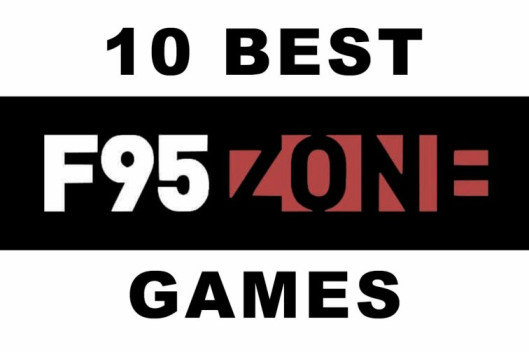Virtual football, which is part of the larger e-sports world, began with simple video games trying to imitate real football. Initially, these games were basic and gave a basic idea of the sport. But as time passed, they improved significantly.
Games like “FIFA” and “Pro Evolution Soccer” became excellent at mimicking actual football. They included detailed gameplay and graphics that looked very realistic. This transformation turned virtual football into more than just a fun game; it became a serious way for people to showcase their football skills and knowledge.
With advancements in technology, these games also improved. They featured better game designs and smarter computer opponents, creating an immersive experience. Virtual football gained popularity not only for playing the game but also for allowing players to take on the role of football managers and strategize. This complexity made it a captivating form of digital entertainment and competition.
The E-Sports Boom
The rise of e-sports has brought a big change in how we view competition and entertainment, showing how technology and gaming have become a part of our daily lives. It has quickly grown from a small hobby into a global phenomenon that attracts millions of viewers and players.
One of the main reasons for its popularity is the ease of online connectivity today. People from all around the world can participate through platforms like Twitch and YouTube. These platforms not only make it accessible but also create strong communities around e-sports. Major tournaments now have huge audiences, similar to traditional sports, with significant cash prizes and sponsorship deals.
E-sports cover various game genres, from strategy to fighting to sports games, making it inclusive for everyone and bringing people together globally. It has become a major player in the entertainment industry, reshaping our perceptions of competition, community, and fairness in today’s digital age.
Impact on Traditional Sports
The rise of virtual football leagues and e-sports has had a big impact on regular sports. Many professional sports teams, especially in football, have started their own e-sports teams.
This helps traditional sports clubs connect with younger fans who are into technology. It also brings in more fans and new ways to make money through marketing. At the same time, e-sports gets more popular because it’s associated with famous sports brands, making it more mainstream.
This mix of traditional and virtual sports is changing things. It’s bringing different groups of fans together and letting traditional sports fans discover the excitement of competitive gaming, while e-sports fans get to know traditional sports.
Training and Tactics
In virtual football leagues and e-sports, training and tactics are super important. They make these games more than just fun; they turn them into serious competitions. Players spend lots of time getting better, just like real athletes.
To do well, they have to learn how to control the game and also understand football strategies. Like real football players, they study how teams play, what their opponents do, and the strategies they use to win.
The dedication and strategy in virtual sports show that e-sports are a big deal. It’s not just about playing; it’s about using your brain to make quick decisions and outsmart your opponents, just like in traditional sports.
Economic Influence
The economic impact of e-sports and virtual football leagues shows how much they have grown and become popular. These digital games are making a lot of money, similar to traditional sports, from things like ads, sponsorships, and selling stuff with their logos.
Big companies see that many people watch and love these games, so they’re spending a lot of money on them. This not only means big prizes for the best players but also more jobs in the industry. Besides players, there are jobs like coaches, analysts, people who make content, and folks who do marketing for e-sports.
This economic impact goes even further, affecting things like how games are made, streaming services, and technology. The demand for good gaming equipment and tech stuff is growing. E-sports and virtual football are not small anymore; they’re a big part of the economy, changing how we have fun and make money.
Social and Cultural Impact
The social and cultural impact of e-sports and virtual football leagues is profound and multifaceted. These digital platforms have created global communities where enthusiasts from diverse backgrounds connect, transcending geographical and cultural barriers. Unlike traditional sports, where physical prowess often plays a significant role, e-sports offer a more inclusive environment, welcoming participants regardless of:
- physical abilities,
- gender,
- or age.
This inclusivity challenges traditional gender norms in sports, encouraging a more diverse range of participants and audiences. Furthermore, e-sports and virtual football leagues have influenced mainstream culture, with professional gamers becoming celebrities and role models, similar to traditional athletes.
They have also sparked discussions about the nature of sports and competition in the digital age, contributing to a cultural shift in how sports are perceived and consumed. This evolution reflects a broader societal trend towards digitalization and demonstrates the powerful role of technology in shaping contemporary social and cultural landscapes.
Challenges and the Future
As e-sports and virtual football leagues keep growing, they face some important challenges that will shape their future. One big challenge is making sure that the games are fair and that cheating is prevented, which is harder because these sports are played online. Keeping competitions honest is crucial for making e-sports respected.
Another challenge is the health of the players. Unlike traditional sports where physical fitness is a focus, e-sports players can have health problems like eye strain and injuries from sitting too much. Taking care of the players’ health is important for the long-term success of the industry.
Also, dealing with digital rights and intellectual property can be tricky, especially as games change. In the future, new technology like virtual reality could make e-sports even more exciting, attracting more people and making more money. As e-sports and virtual football leagues face these challenges and use new technology, they will change how we have fun and compete, bringing the virtual and real worlds closer together in new ways.
Conclusion
The rise of e-sports and virtual football leagues marks a significant shift in the world of sports and entertainment. As they continue to grow and evolve, they redefine what it means to be an athlete and a fan, creating a new, exciting landscape that melds the virtual with the real.











